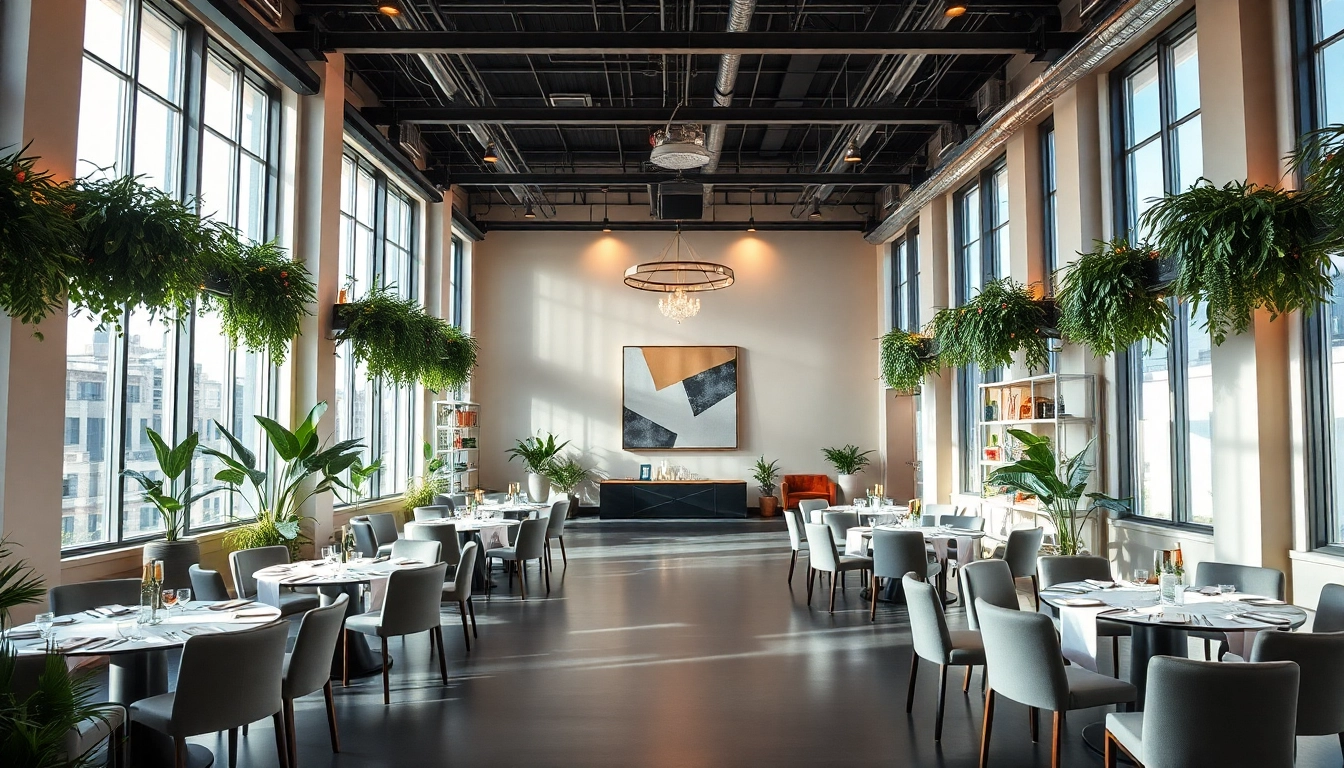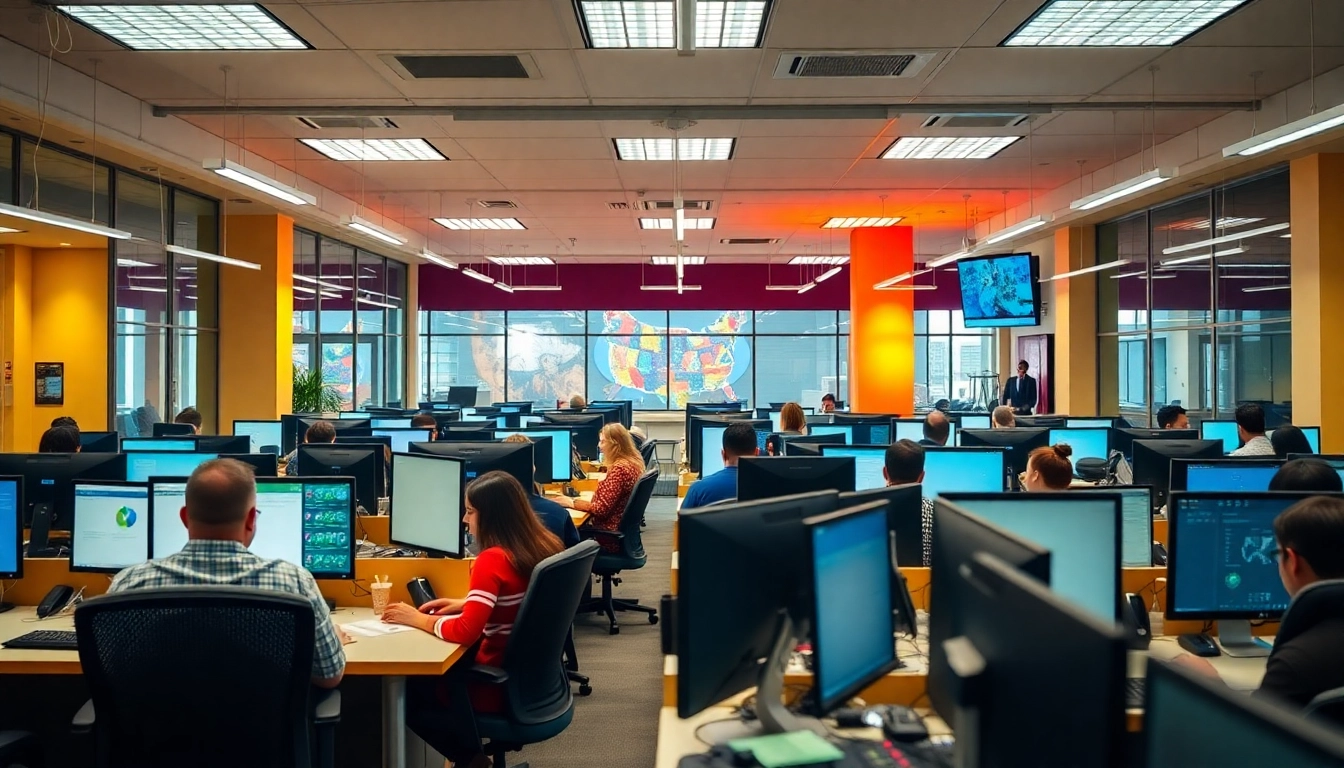Understanding Your Needs for an Event Space
Choosing an event space involves understanding your unique requirements. From the type of occasion you’re hosting to the budget you have in mind, there are several crucial criteria to consider.
Identifying Event Type
The first step in securing an event space is to clearly identify the type of event you’re planning. Are you organizing a corporate meeting, a wedding, a birthday party, or a community gathering? Each type of occasion has distinct needs that influence the selection of the venue.
For corporate events, you may seek spaces that offer amenities such as audiovisual equipment, breakout rooms, and professional catering services. In contrast, a wedding venue may require a picturesque setting, flexibility in decoration, and accessibility for guests. By pinpointing the type of event, you can better tailor your search and ensure that the venue matches your specific needs.
Estimating Guest Capacity
After identifying the nature of your event, it becomes essential to estimate the number of guests you expect. This figure will guide your choice of event space significantly, as different venues can accommodate varying capacities.
It is advisable to have a headcount range, as it will affect not only the space itself but also other logistics like catering, seating arrangements, and the overall flow of activities. A venue that feels too spacious can feel empty and underwhelming, while a cramped space can make guests uncomfortable. Aim for a venue that comfortably fits your estimated guest count, with a bit of flexibility to account for last-minute additions.
Budget Considerations
Budget is a critical factor in every event planning process. Determining how much you can spend on the event space will narrow down your options significantly.
When budgeting, remember to consider not just the rental fee for the space but also additional costs such as insurance, deposits, service fees, and any required deposits. Some venues may also impose restrictions on catering and decoration services, which can impact your overall budget, so it is vital to clarify these details during your venue search.
Key Features of an Ideal Event Space
As you scout for the perfect venue, certain features can make or break the event experience.
Location and Accessibility
The venue’s location is one of the most significant factors in the success of your event. It should be convenient for your guests, ideally placed within a reasonable distance to major transport links, parking facilities, and accommodations if needed. Accessibility is also paramount; ensure the venue complies with regulations and is accessible for all guests, including those with disabilities.
Amenities and Services Offered
A comprehensive list of amenities can enhance the experience at your chosen event space. Look for critical amenities like:
- Wi-Fi connectivity
- Audio-visual equipment
- Catering services
- Restroom facilities
- Climate control (heating/cooling)
Some venues also offer event coordination services, which can be particularly useful for large gatherings. These professionals can help manage logistics, from the layout and decoration to catering and guest services.
Flexibility of Layout and Design
Not all events are suited for a standard banquet hall layout; flexibility in the venue’s design and layout is essential. Different space configurations may be necessary depending on the type of event. A theater-style layout may work well for presentations, while a banquet setup is more suitable for meals and socializing. Check if the event space allows for adjustment or reconfiguration of seating and decor to suit your requirements.
How to Find the Best Event Space
Finding an ideal event space can be a daunting task. With so many options available, following a structured approach can simplify the process.
Researching Online Options
The internet is a treasure trove of information on event venues. Use search engines, venue-finding websites, and social media to gather a list of potential spaces. Filter options based on your previously identified needs, such as location, capacity, and amenities.
Check out portfolio images and virtual tours that many venues provide online. These visual tools can greatly assist in determining the suitability of the space without actual visits.
Reading Reviews and Recommendations
In today’s digital age, consumer reviews can provide invaluable insights. Search for online reviews and ratings of the venues on your shortlist. Look for feedback related to various aspects, including customer service, responsiveness, upkeep of the space, and overall guest experience.
Speak to peers or colleagues who have hosted events to get personal recommendations based on their experiences. Their insights can direct you toward venues that align with your needs.
Visiting Potential Venues
Once you have your shortlisted venues based on your research and reviews, arranging site visits is the most crucial step. Visiting each location allows you to get a feel for the space, understand the ambiance, and envision how your event would unfold.
Prepare a checklist of questions to ask during your visits. Inquire about pricing structures, decoration limitations, and anything specific related to your event. Being meticulous during this stage will ensure you can make an informed decision.
Planning Your Event in the Chosen Event Space
After selecting your perfect event space, the next phase involves planning all logistical aspects to make the event a success.
Design and Decoration Ideas
The design and decoration of your space can directly impact the atmosphere of the event. Depending on your theme, consider elements such as:
- Table settings and linens
- Lighting (both natural and artificial)
- Floral arrangements
- Signage for directions or themes
For a truly personalized touch, think about custom decor that reflects the theme of your event while maintaining coordination with the venue’s existing aesthetics.
Audio-Visual Requirements
Audio-visual elements play a critical role in many events, especially those involving presentations or performances. Assess the audio-visual capabilities of your event space and ensure that they meet your requirements, such as microphones, projectors, and screens.
For larger events, consider engaging a professional audiovisual company to set up the necessary equipment to ensure a seamless presentation.
Catering and Food Arrangements
Catering is often at the heart of any successful event. Discuss food service options with your venue. Some venues provide in-house catering, while others allow external vendors. Select a menu that caters to various dietary restrictions while also aligning with the theme of your event.
Consider food presentation and service styles, whether buffet, plated, or family-style, which can affect the dining experience.
Maximizing Your Event Space Experience
In order to ensure a memorable event experience, additional elements must be incorporated into your planning.
Engaging Activities and Entertainment
An event that contains engaging activities or entertainment can leave a lasting impression on guests. Depending on the type of event, consider options such as:
- Live music or DJs
- Interactive stations (including photo booths, crafts, or food tastings)
- Speakers or presentations that resonate with guests
Engagement helps to create a dynamic atmosphere, encouraging networking or social interaction among guests, which is vital for milestone events.
Creating Memorable Experiences for Guests
To elevate the guest experience further, think about personalized touches, such as small gift bags, custom name tags, or unique event tokens. Consider how you can incorporate your brand or theme into these elements to leave a lasting impression.
Small surprises throughout the event can also pique guest interest, whether that be a surprise appearance from a speaker or unexpected activities that align with your event.
Post-Event Follow-Up and Feedback
The event doesn’t truly end when it wraps up; effective post-event follow-up can enhance future gatherings. Reach out to attendees to thank them for their participation and solicit feedback regarding their experience. This can provide invaluable insights for planning future events and strengthen relationships with participants.
Send out surveys to learn what guests enjoyed, what they would like to see improved, and how overall product offerings can be enhanced. Following up shows your commitment to continuous improvement and guest satisfaction.



